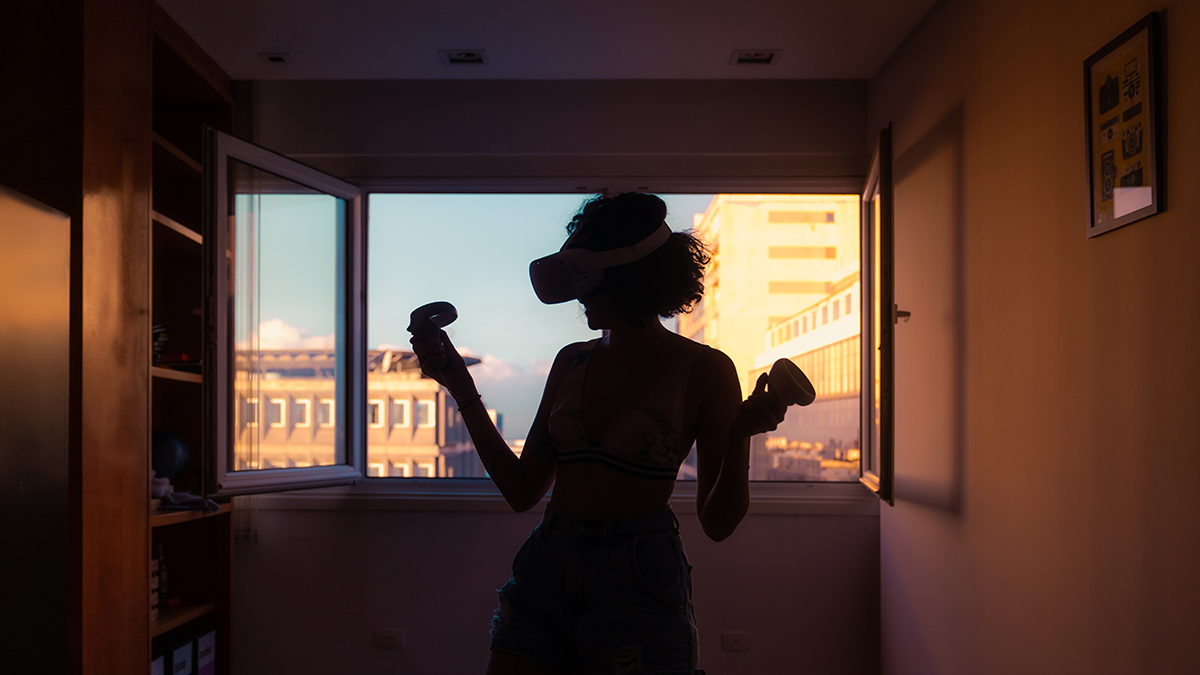While 2022 hasn’t exactly been a record year for gaming, at least the year has some good news for VR. This year the active VR install base should reach 27.7 million, this number is growing from 8 million active headsets in 2019 to 46.0 million in 2024. VR games revenue this year is expected to reach $1.8 billion and looks to increase by more than sixfold in five years — from $0.5 billion back in 2019 to $3.2 billion in 2024.
The figures come from a Newzoo report which has shared details on the virtual reality games market, and while VR is still falling behind other more traditional gaming methods, on these numbers alone, the future looks bright.
Standalone virtual reality hardware solutions — headsets that work without needing to be connected to a computer — are also proving popular as the most accessible form of entry and a lack of complications make them an ideal way-in for gaming. This has led to a boom in growth for the market as more people are experimenting with VR technology at more affordable price points such as the £399 currently being asked for Meta’s popular Quest 2.
Gaming and beyond
The report shows that of the 5,797 respondents, gaming was the top ‘preferred use’ for the a VR headset, which is to be expected as the video game industry has been a huge gateway for this technology as other uses slowly try to make themselves essential.
Adventure, shooter, and simulation games are the most played game genres, with subgenres such as survival horror also being extremely popular. Some of the most played VR games include The Walking Dead: Saints & Sinners, Superhot, and Microsoft Flight Simulator. In comparison, the themes within those games can be much broader as users enjoy anything from real-life scenarios grounded in realism all the way to extravagant space exploration. The rising popularity of metaverse titles such as The Sandbox is also contributing to the growing interest in the VR space.
Unity and Unreal Engine remain the most popular options for the development of VR titles. However, as intrigue continues to grow, more game engines are looking to provide better creation tools and support. This coupled with the advancement of VR hardware is helping to create experiences that are more immersive and ultimately resulting in a better product.
VR of course also has a future beyond games, many industry sectors are looking to use VR experiences to streamline their working methods, for example, professional designers can use VR to visualise their creations in the digital world before committing to the task in the real world and some businesses are using VR to help train employees. These VR capabilities offer workers a risk-free environment to learn and work within.
While right now gaming is very much so at the forefront of the VR industry, its potential for the future could expand far beyond.
Paige Cook is a writer with a multi-media background. She has experience covering video games and technology and also has freelance experience in video editing, graphic design, and photography. Paige is a massive fan of the movie industry and loves a good TV show, if she is not watching something interesting then she's probably playing video games or buried in a good book. Her latest addiction is virtual photography and currently spends far too much time taking pretty pictures in games rather than actually finishing them.



































